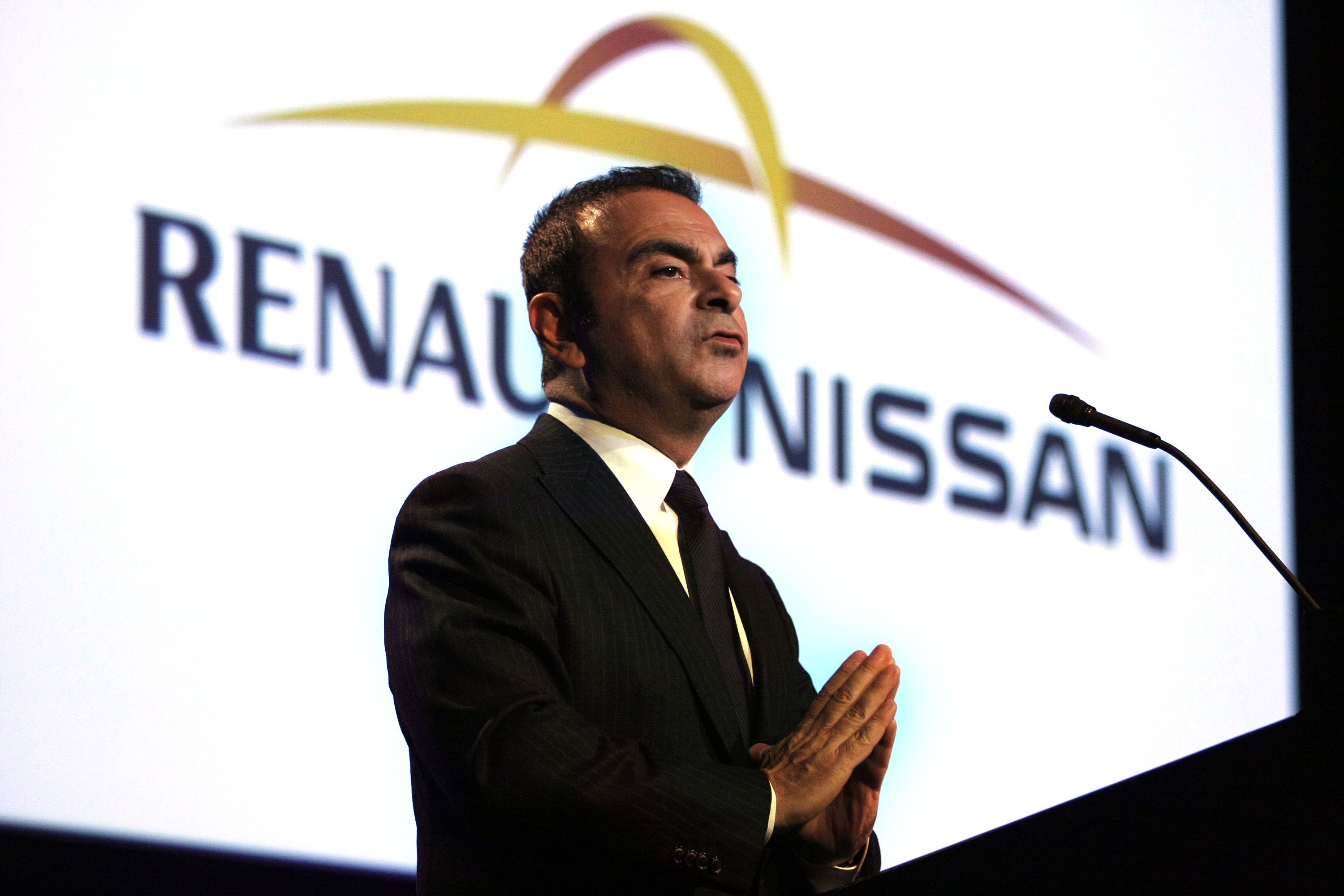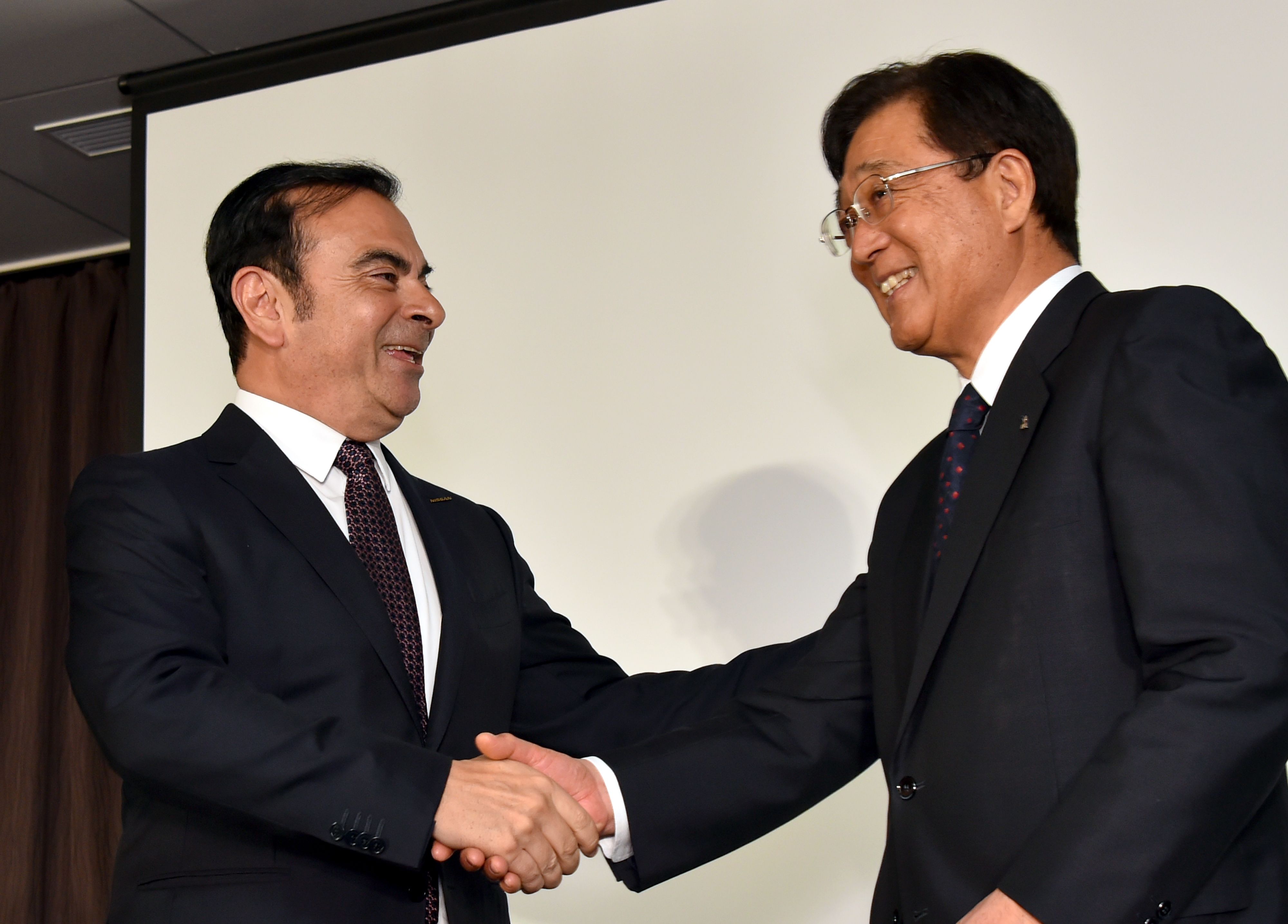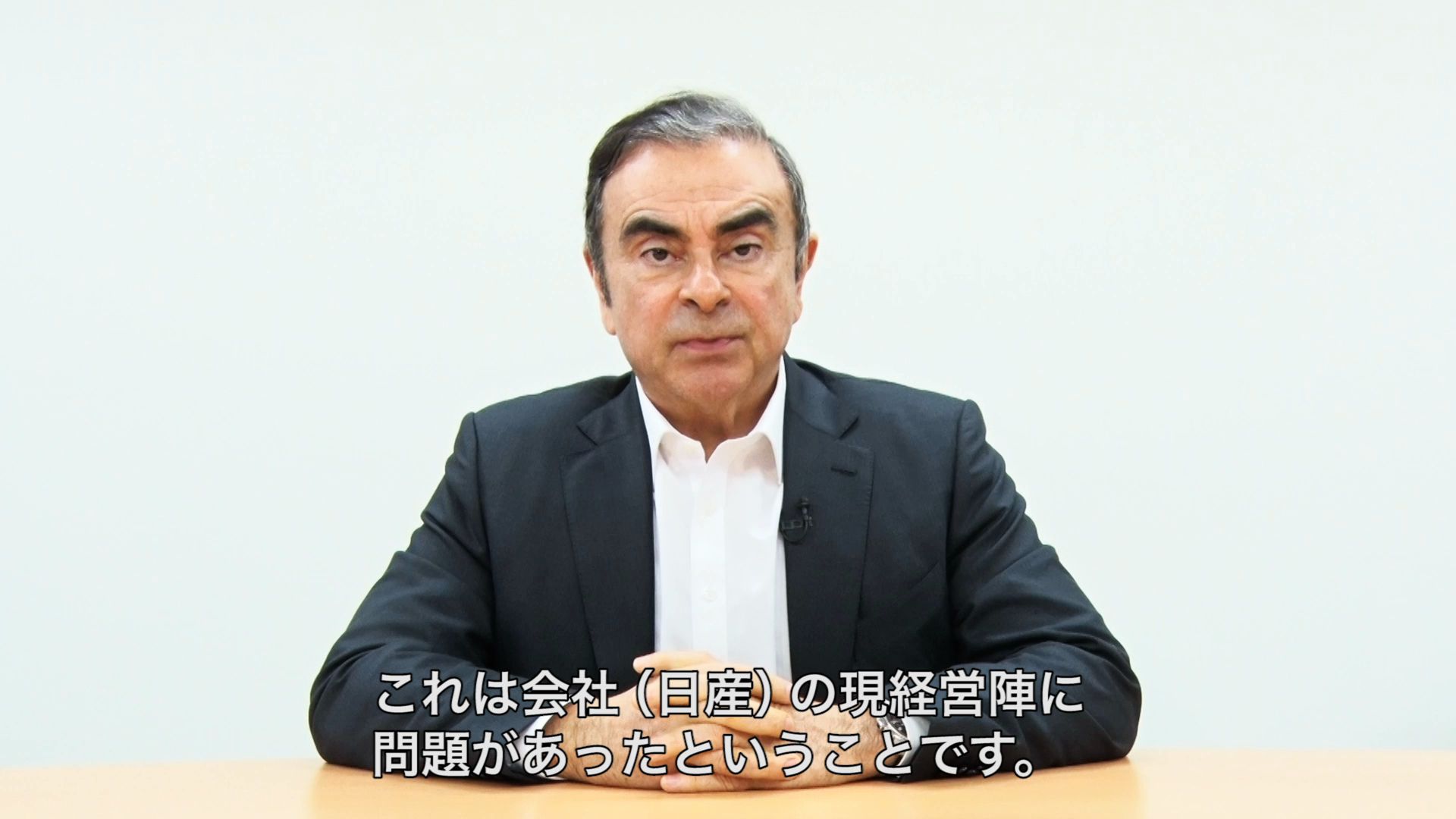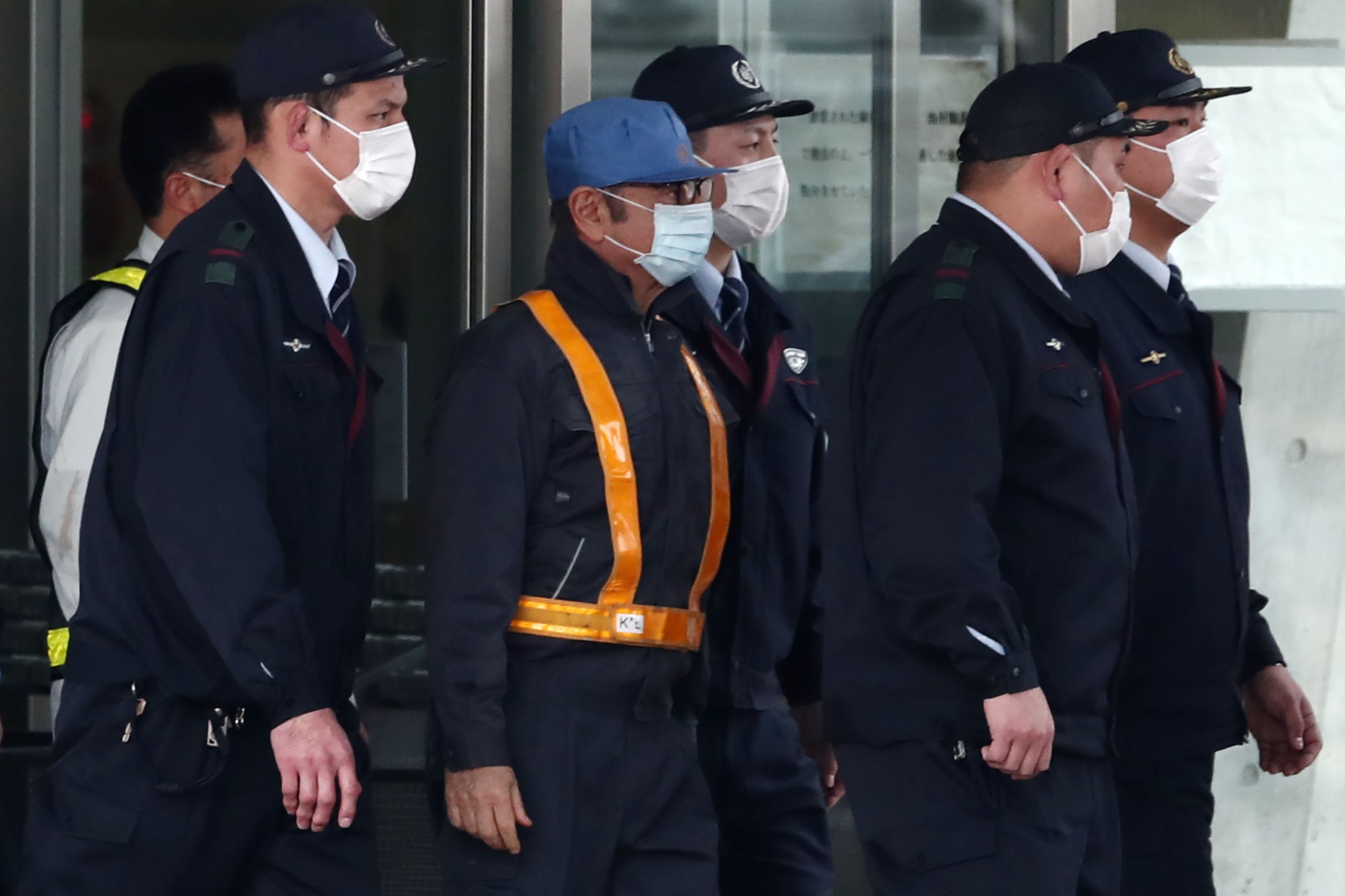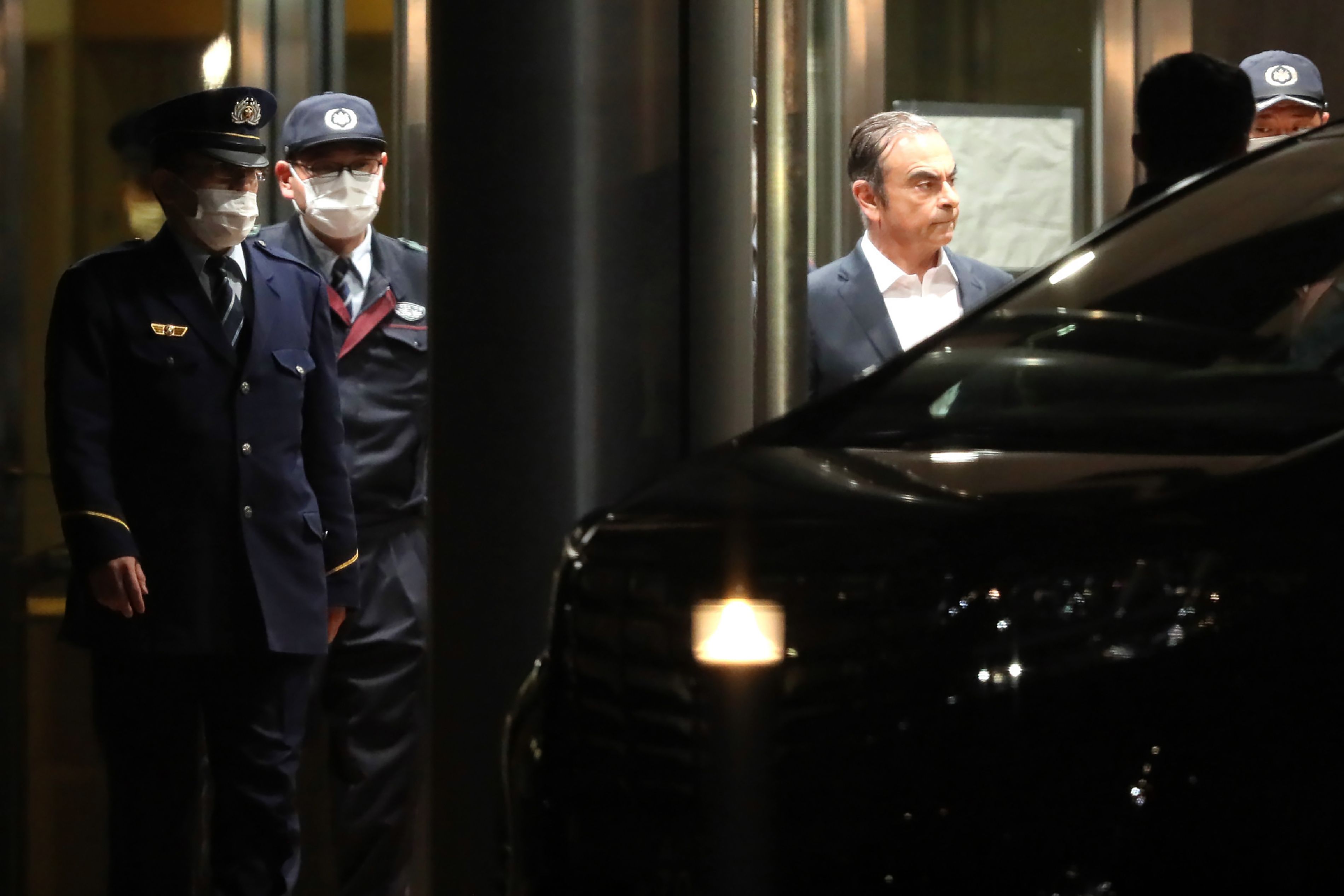Carlos Ghosn stepped down as the CEO of Nissan in spring of 2017, but since then he’s continued to make headlines with an increasingly bizarre set of legal problems that now spans the globe. Accused of financial wrongdoing during his time as chairman and CEO of Nissan, he now stands at the center of a scandal that has led to his arrest, dismissal as CEO, and eventual status as an international fugitive after an alleged escape that sounds like something out of a movie.
To explain how all of this came to be, let’s take a look back at the key events in the evolving saga of Carlos Ghosn.
Early History
Carlos Ghosn was born in Brazil in 1954 to Lebanese parents. At six, the family moved back to Lebanon, where Ghosn spent the rest of his childhood before attending university in France. He studied engineering at the École Polytechnique and landed his first job at Michelin.
He rose quickly there, going from working at plants to managing a plant to heading up research and development for industrial tires in just six years. By the time he was 30, Ghosn was the Chief Operating Officer for South America. He transitioned to COO of Michelin North America, and became CEO of that division less than a year later.
In 1996, Ghosn was poached by Renault to become the automaker’s executive vice president in charge of purchasing, advanced research, engineering and development, powertrain operations, and manufacturing. He continued to grow in influence and power, becoming a key power broker at the company.
Just three years later, Ghosn was instrumental in the creation of the Renault-Nissan alliance. Renault bought a 36.8-percent stake in Nissan, a company that was floundering at the time. While retaining his role at Renault, he simultaneously became the chief operating officer of Nissan. By 2001, he was CEO of Nissan. By 2005, he was in charge of Renault, too.
Ghosn’s tenure was largely considered a massive success. During the first year of his “Nissan Revival Plan,” operating profits grew 252 percent. Nissan was brought from the brink of bankruptcy to prosperity almost overnight.
It didn’t come easy: Ghosn’s relentless cost-cutting strategy led the company to eliminate 21,000 jobs, shuttering plants throughout Japan and selling off numerous Nissan assets. But to most outsiders, Ghosn was a tough operator who did what had to be done to save a seemingly doomed company. He disregarded Japanese corporate culture’s emphasis on protecting jobs, earning the nickname “Le Cost Killer.” His results spoke for themselves: The Renault-Nissan alliance grew to become one of the largest automotive conglomerates in the world.
Sales also grew thanks to Nissan’s decision to acquire Mitsubishi in late 2016, which gave Ghosn yet another coexisting title: Chairman of Mitsubishi Motors. It was a textbook Ghosn play—find an automaker in dire straights (this time, the result of an expensive and embarrassing fuel-economy cheating scandal) and offer them a takeover lifeline they couldn’t refuse. In the process, the automakers combined synergies, and Ghosn consolidated his power.
Ghosn’s success earned him respect, admiration and awards. In 2002, Fortune magazine named him Asia Businessman of the year; two years later, Fortune Asia named him Man of the Year. He was the first non-Japanese business leader to earn the Blue Ribbon Medal from Japan’s Emperor Akihito, and in 2006, he was made an Honorary Knight Commander of the Order of the British Empire.
Departure and Allegations
On February 22, 2017, Ghosn stepped down as CEO of Nissan. He would still serve as chairman of the company, but his protégé Hiroto Saikawa would take over as CEO. Ghosn would also stay on as chairman and CEO of Renault and chairman of Mitsubishi.
For more than a year, things were largely normal. But on November 19, 2018, upon his arrival in Tokyo via private jet, Ghosn was arrested by Japanese authorities for alleged financial misconduct. Both Nissan and Mitsubishi fired him shortly thereafter, but the jailed executive remained chairman and CEO of Renault through January of 2019, as the automaker and the French government continued to support him, citing innocence until proven guilty.
Nissan was quicker to dismiss Ghosn, likely because it was that automaker’s inquiry that spurred his arrest. According to Nissan, an internal inquiry revealed that Ghosn had been underreporting his income to the Japanese government for years. He was also accused of using company assets for personal purposes.
“Needless to say, this is an act which cannot be tolerated by the company,” Saikawa, Ghosn’s successor as CEO of Nissan, said at the time. The board unanimously removed Ghosn.
Incarceration, Indictments, and Supposed Conspiracy
A few weeks later, reports surfaced alleging that Ghosn lost money on personal investments and, rather than paying them, transferred those losses to Nissan. On December 10, Ghosn, and Nissan as a company, were both indicted in Japan for underreporting the executive’s income by roughly $43 million.
While he was already in jail, Ghosn was re-arrested on December 20th, with Japanese prosecutors alleging that he shifted $16 million in personal losses to Nissan. Ghosn continued to deny all charges, saying in court that he was “unfairly detained based on meritless and unsubstantiated accusations.”
In late January 2019, Ghosn resigned as chairman and CEO of Renault, after more than 20 years with the company. Of the three automakers he once led, Renault was the only one that allowed him to resign rather than firing him. Just a few weeks later, though, Renault alleged that Ghosn improperly used company funds to pay for his wedding.
After months in jail, Ghosn posted bail of 1 billion Yen ($9.2 million at current exchange rates) in March of 2019, the highest bail ever set in the country. He left the jail wearing an elaborate maintenance-worker disguise, walking in a group of similarly-dressed decoys and getting in a van with a ladder on the roof rack. It was an attempt to avoid media attention, and it failed spectacularly.
The following month, Ghosn was re-arrested at his apartment on fresh allegations that he skimmed $5 million off of Nissan’s international distributor payments.
After being indicted on those charges, Ghosn is released on condition that he stay confined in his Tokyo apartment, refrain from contacting people involved in the investigation, and pay a 500 million Yen bond ($4.6 million at current exchange rates).
Prosecution and Escape
After Ghosn’s release, his successor Hiroto Saikawa resigned after admitting he received excess stock options totaling $450,000. He committed to repaying every dollar, and Nissan opted not to charge him. Saikawa claimed he was unaware that the payment method, set up by Ghosn’s former deputy Greg Kelly, was improper. Kelly, incidentally, is alleged to be one of Ghosn’s co-conspirators.
Shortly after, on October 23, 2019, Ghosn pled not guilty on all charges. The following month, Ghosn’s wife Carole complained that her husband wouldn’t get a fair trial under what she called Japan’s “hostage justice system;” she requested a trial in France.
Her sentiments echo a longstanding complaint about the Japanese justice system, which relies on confessions more than hard evidence. For instance, Japanese authorities rarely let suspects out on bail without a confession. As prosecutors wait for a confession, they keep defendants incarcerated and under constant surveillance, often barring them from any outside contact, even with family members.
This system, which is detailed in this Human Rights Watch summary, is frequently criticized for violating both Japanese constitutional law and international law. These complaints, we should note, existed long before Ghosn was arrested. Still, Ghosn wanted to get the word out about the Japanese system—he even approached Hollywood producer John Lesher, pitching a movie about his situation where the Japanese justice system was the villain.
But the talks didn’t go far. So Ghosn, apparently fed up with his trial delays, his inability to see his wife, and the justice system as a whole, seemingly decided he didn’t want to face trial in Japan. Instead, he hatched a plan to flee to Lebanon, where he grew up. Thus unfolded an alleged scheme so harebrained, it sounds like it came right out of a cartoon.
According to multiple unverified reports, Ghosn hired a full Gregorian band to play a holiday concert at his Tokyo apartment, where he was being held. Then, with the help of a hired team of ex-special-forces officers who specialize in extracting people from captivity, Ghosn crawled into an instrument case (perhaps a large double-bass), and the band carried him away when they left the apartment at the end of the party.
Once out of the building, Ghosn was allegedly whisked to the VIP gate of Kansai International Airport and onto a private jet bound for Istanbul, Turkey. Despite his lawyer holding all three of his passports, Ghosn was somehow able to transfer through Turkey and continue to Lebanon, where he is currently staying.
Officials in Turkey have already detained seven aviation workers allegedly connected to the escape, probing how Ghosn made it into and out of that country and why that route was chosen. One airline employee is already facing criminal charges for leaving Ghosn’s name off of official documentation for the flight.
But by the time anyone in Japan discovered his escape, Ghosn was already safe in Lebanon.
International Dispute
Ghosn’s slippery escape from Japan makes this an international scandal. Interpol, the agency that helps coordinate police activity between countries, has given Lebanon a “red notice” for Ghosn’s arrest. A red notice isn’t the same as an arrest warrant, but it is a request for a country’s authorities to arrest a fugitive pending extradition, surrender, or similar legal action.
An Interpol red notice is issued on behalf of a member state, meaning that Ghosn is wanted by Japan and Turkey, not by Interpol itself. A red notice is not binding, meaning it’s up to the Lebanese government to decide whether to arrest Ghosn.
Why did Ghosn choose Lebanon? Aside from his family connections, the country is a uniquely safe place for someone in Ghosn’s predicament. Lebanon does not extradite its own citizens to face trial in other nations, and Ghosn is a citizen, so as long as he stays within the country’s borders, the only prosecution he’s likely to face will have to come from the Lebanese government. France has also confirmed that, since Ghosn also maintains French citizenship, he would not be extradited if he were to turn up in France.
We should note that Ghosn is uniquely popular in Lebanon. In 2017, the Lebanese government honored the executive by putting his face on a postage stamp, and while Ghosn has never sought political office, in the past people have suggested that he should run for the Lebanese presidency.
Ghosn would still be subject to French prosecution, including for his alleged wrongdoing at Renault. Even in Lebanon, Ghosn is not in the clear. It’s illegal for Lebanese citizens to visit Israel; Ghosn traveled to that nation in 2008 on business. Lawyers have already brought this infraction up to Lebanon’s prosecutor.
What Happens Next
Ghosn is currently an international fugitive. He faces investigations into his financial conduct in Japan, and both Japan and Turkey are investigating how he escaped Tokyo and passed through Turkey without the knowledge of immigration officials. And he’s not fully in the clear in France or Lebanon. There are bound to be more developments in this case. As they unfold, we’ll continue to update this post.
Source: Read Full Article

